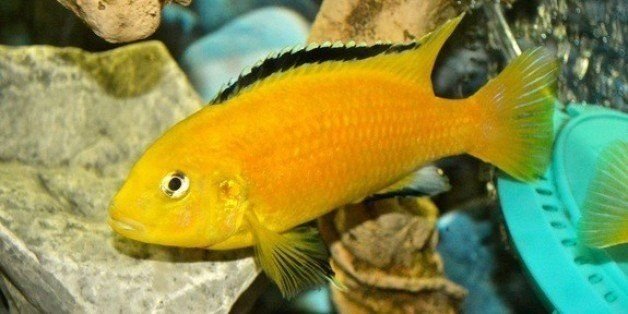
Moving, chimpanzees – there is a new brain in the city that has gills.
The species of aquarium fish has a surprisingly long memory – according to a new study it can remember the location of a tasty corner of food for up to 12 days after encounter. Extensive memory can give fish an evolutionary benefit if there is a food shortage, scientists suggest.
“Fish that remember where food is found have an evolutionary advantage over fish that don’t,” said co-author Trevor Hamilton, a neuroscientist at MacEwan University in Canada, in a statement. “If they can remember that a certain area contains food without being threatened by a predator, they can return to that area.” [See what the thought of fish looks like]
Intelligent animals
In the hierarchy of intelligent animals, fish are usually placed far below chimpanzees, dolphins and rats, but above roaches. It is known that fish have a memory of 3 seconds to 30 seconds.
But after talking to Erika Ingraham, a student at MacEwan University who owned aquarium fish, Hamilton wondered if some fish species are smarter than they seem. African cichlids (Labidochromis caeruleus) in particular exhibit a tendency towards aggression, which normally requires long-term memory to remember previous complaints. Moreover, previous studies have shown that cichlids use human logic.
So, Hamilton and his colleagues trained African cichlids to get into the aquarium and receive the prize. After three days of 20-minute training sessions, the fish were to “rest” for 12 days.
The fish were then allowed to roam the area again, while movement recording software recorded their swim paths.
Cichlids remained most in the area where they had previously found food, probably because they remembered tasty treats and were looking for them.
In addition, the fish gave up their preference for this zone when scientists trained them to associate another incentive to eat, suggesting that they are actually staying there, hoping for food.
The findings suggest that fish have the ability to create memories and associations in the long run, which could help them perform higher-level tasks, say the researchers.
“There are many anecdotes about the intelligence of these fish,” said Hamilton. “Some even believe their cichlids watch TV with them.”
Works on fish memory will be presented on Wednesday (July 2) at the meeting of The Society for Experimental Biology and have not yet been published in a peer-reviewed scientific journal.
Follow Tia Ghose on Twitter and Google+. Follow Live Science @livescience, Facebook and Google+. Original article about Live Science.
Photos: the most bizarre fish
Creative creatures: 10 animals with tools
5 of the smartest primates in the world
Copyright 2014 LiveScience, TechMediaNetwork. All rights reserved. This material may not be published, broadcast, rewritten or distributed.
